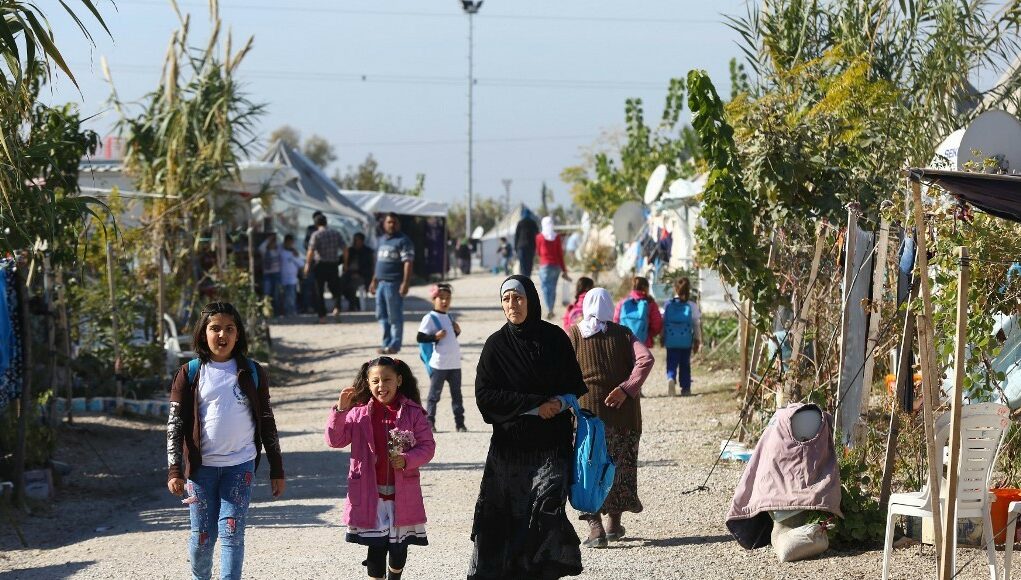Syrian refugees in Turkey are once again being targeted by hate speech and are blamed for many of Turkey’s social and economic ills following a statement from Turkey’s main opposition leader, who vowed to send them back to Syria.
Kemal Kılıçdaroğlu, leader of the Republican People’s Party (CHP), in a recent statement promised to return Syrians who have been fleeing across the border since the start of the Syrian civil war in 2011 back to Syria if his party comes to power.
“Under our rule, we will come to terms with our Syrian guests and see them off to their homeland in two years’ time. This will be one of the most important priorities of our government.” Kılıçdaroğlu tweeted.
Kılıçdaroğlu blames Syrian refugees for growing unemployment and said Syrians as cheap labor is the reason for the worsening economic situation in the country.
As a consequence, the CHP has become the representative of nationalist, anti-refugee anger in Turkey by targeting Syrians. Turkish social media accounts managed by politicians, public figures or anonymous figures are conducting campaigns, just like before, demanding the Syrians’ deportation, with users sharing posts with such hashtags as #ülkemdesuriyeliistemiyorum (I don’t want Syrians in my country) and #SuriyelilerDefoluyor (Syrians get out).
The campaigns rapidly turned into verbal hate attacks against Syrians and the subject of online debate between users who defend Syrian refugees’ rights and those demanding the immediate expulsion of Syrian refugees.
Turkish Minute spoke with Ümit Kıvanç, a Turkish journalist and writer based in Istanbul, who thinks Turkish society does not like and easily hates anyone who – according to the society — does not belong.
“In the Syrians’ case, the society also humiliates these people. Nationalists see non-Turks as inferior creatures that will ruin the ‘great’ Turkish race. On the other hand, those who consider themselves modern and non-religious think the Syrians are rude, uneducated, uncivilized and conservative/fanatics and that they will harm Turkish secular culture,” said Kıvanç.
According to the latest data from the Refugees and Asylum Seekers Assistance and Solidarity Association, the number of registered Syrians under temporary protection in Turkey is 3,600,710. A total of 1,686,259 of those people (46.8 percent) are children between the ages of 0 and 18.
Savaş Genç, a Turkish political scientist living in Heidelberg, Germany, since 2015, says the Turkish society’s antagonistic reaction to the Syrians does not surprise him. According to Genç, Turkish ultranationalism, long promoted by the national education system, is supra-ideological and a “disease” that unites the various segments of society.
“Turkish society couldn’t even tolerate different ethnic groups, autochthonous people such as the Greeks, Armenians and others, with whom they’ve lived together for hundreds of years in these lands. They could not even accept the Kurds, who are Muslims just like Turks. Therefore, the aggressive nationalist approach and verbal attacks against Syrians do not surprise me.
The “Hate Speech and Discriminatory Discourse in Media 2019 Report,” published by the Hrant Dink Foundation, states that Syrian refugees in Turkey were the second most targeted group in the Turkish media, with 760 hate speech items. According to the report, Armenians were the most targeted group in 2019 with 803 hate speech items.
The report states that Syrians were systematically coded as criminals, murderers and thieves who posed imminent security threats including terrorism.
According to Genç, the most important question we should ask is: Why are people are outraged at Syrians instead of Turkish President Recep Tayyip Erdoğan’s ruling Justice and Development Party (AKP)?
“They are attacking the Syrians because they can’t give a free and open response to the AKP for its refugee policies. On the other hand, Erdoğan is constantly talking about the money the government has spent on Syrians to curry favor with the EU. That hurts the Turkish people. They think that instead of Turkish citizens, Erdoğan spent the money on Syrians,” says Genç.
Under a refugee deal signed in 2016, Ankara agreed to curb the flow of migrants and refugees into the EU in exchange for 6 billion euros for refugee-related services. On June 3, 2021, the European Commission proposed topping up support for refugees and host communities in response to the Syria crisis by a total of 585 million euros. Out of the amount proposed, 100 million euros will go to Jordan and Lebanon, which host the largest number of refugees per capita in the world, while 485 million euros will support refugees in Turkey in 2020, continuing the EU’s two flagship humanitarian programs.
According to Kezban Karagöz, a Turkish academic who is involved in NGO activities and works with refugees, many Turks migrate illegally to European countries.
“Turkish people are also becoming refugees in other countries, but Turkish society acts unethically and sees Turkey as the only country that accepts refugees. Asylum seekers are not only those alleged to have links to the Gülen movement. Many Turks, including politicians, journalists and students, in the same boat as Syrians and Afghans, try to reach Greece to ask for asylum. People in Turkey do not want to see this reality,” Karagöz says.
Human Rights Watch states that “In Turkey, executive interference in the judiciary and prosecutorial decisions are entrenched problems, reflected in the authorities’ systematic practice of detaining, prosecuting, and convicting on bogus and overboard terrorism and other charges, individuals the Erdoğan government regards as critics or political opponents.”
According to HRW, state-targeted Turkish citizens are journalists, opposition politicians and activists — in particular members of the pro-Kurdish Peoples’ Democratic Party (HDP). The largest targeted group consists of those alleged to have links to the movement inspired by Sunni cleric Fethullah Gülen, which Turkey deems a terrorist organization, calling it FETÖ, and holds responsible for a July 2016 coup attempt.
“After the injustice they have experienced in the judicial system, they even take on the risk of death and sometimes even get in the boats with their children. Greek and European authorities are surprised to see such educated Turkish migrants for the first time,” says Karagöz.
Kıvanç thinks some CHP supporters see Syrians as potential voters for the AKP, while on the other hand Turkish leftists think there are many jihadists among the Syrian refugees and that they pose a big danger. Kıvanç also underlines the vulnerability of the Syrians in Turkey.
“People know how defenseless Syrians are – Syrian children and elders work under poor conditions and struggle without social rights or safety in the workplace. Therefore, Turkish people think they can verbally and also physically attack them because nobody will defend refugees’ rights even if they make a complaint…”
Syrian refugees are at risk in the Turkish labor market due to a lack of regulation. A statement issued in March 2019 by the Ministry of Family, Labor and Social Services said only 31,185 Syrians had been granted work permits in Turkey.
Hate speech towards Syrians has led to serious incidents in the recent past. Syrian refugee Abdulkadir Davud (21) was shot dead in August 2020 in a hate crime in Istanbul. In September 2020 Eymen Hammami (16) was stabbed to death in another alleged hate crime in the Black Sea city of Samsun. Three female Syrian refugees and a child were beaten in October in the southeastern city of Antep. Vail El Mansur (14) was killed on his way to work the same week.
In March another Syrian refugee who was collecting trash was assaulted by a group of street-cleaners in southern Antalya province. The Syrian man was beaten, his motorcycle was crushed with a garbage truck and set on fire, and he passed out on the street.
According to Kıvanç, there are also politicians and political parties who want to profit from these hate campaigns. “They are pumping hate, knowingly or unknowingly – fueling racist feelings and aggression to win votes in the coming elections.”
Kıvanç thinks the incitement of xenophobia and the effort to bring social tensions to a boiling point by the CHP can have serious and bloody consequences.
“The CHP is not aware of the seriousness of the issue. They do not take into account how all this can end. Of course, racists will rejoice if this rhetoric turns into reality and if Syrians are killed. On the other hand, I don’t think the CHP will feel much remorse if Turks cause harm to Syrians – as in the murder of Syrians or attacks on their houses and shops,” Kıvanç adds.
By: Alin Ozinian
Source: turkish Minute



